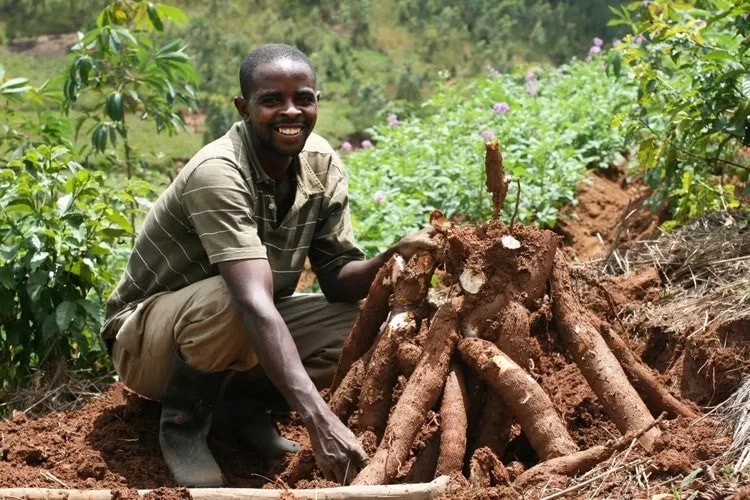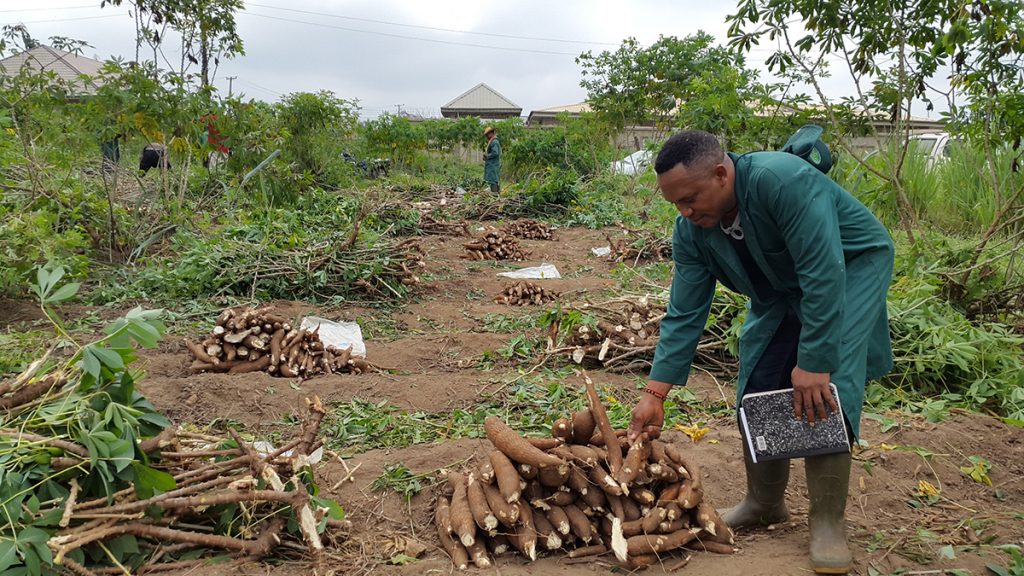As we become adults, we are tasked with making money and providing a living for our families. We choose different paths and occupations based on different factors. If you’re looking for a job that will give you financial stability and fulfillment, try your hand at farming – cassava cultivation for example.
Farming in Nigeria is one of the key industries, and it is one of the most high-potential, too. Cassava farming in Nigeria is a growing industry that attracts more and more entrepreneurs. Thus, cassava production is one of the main options to consider.
Maybe it is cassava production cost per hectare, maybe the peculiarities of cassava planting season in Nigeria and current price of cassava per ton in Nigeria, maybe flexibility in preparing business plan for cassava processing plant, or just enough directions on how to start a cassava processing company, but commercial cassava farming shows the increasing number of cassava plants.
The future of cassava farming is very bright: a simple cassava farming business plan today can make you a wealthy person in a few years. So if you’re looking for an industry to join, here is a guide to farming cassava in Nigeria.
Start your own business with the Jiji app
1. Reasons to start cassava farming
Before looking for the answer to how to start cassava farming in Nigeria, you should answer another question; and it is not how much is a ton of cassava in Nigeria, how many months to harvest cassava, what are the rates of cassava production in Nigeria by state, and not even how to plant cassava. Before starting any enterprise, you need to decide why exactly you want to do it. With cassava, making the right decision is pretty easy, since growing cassava is a popular and profitable business for many reasons.
Nigerian food industry, which can’t be imagined without cassava. Gari and Eba are two dishes that every Nigerian is familiar with, and cassava is their main ingredient. As a staple of Nigerian cuisine, cassava will never lose its popularity. Consequently, cassava plantation is a good idea, and cassava production in Nigeria is a lucrative business.
Export opportunities. Although cassava products are consumed primarily in Africa, there are several countries in the world with a high demand for them, too. This means that opening a cassava processing plant will let you become a leading Nigerian cassava exporter in no time.
Versatile product. Unlike many other popular Nigerian fruits and vegetables, cassava is consumed to the last bit. This is the obvious benefit for cassava cultivation in Nigeria. Roots are used in cooking, leaves are used for feeding livestock, and stems allow for planting more cassava for the next season.

2. Cassava farming business plan
After you find the clear answers to “why”, you come to “how” to start a cassava processing company. Like any other business, cassava farming cannot be successful without thorough research and a business plan that lists your potential expenses and steps you need to take in order to start the farm. Creating a business plan should be your first step on the way to your dream business – cassava farming.
Normally, your business plan should include all kinds of information relevant to cassava farming: for example, the price of cassava per ton in Nigeria, a feasibility research, a look at the competitor, the staff, and their salaries, and ways of selling the product. However, the part regarding expenses may be the most important one, so remember it during preparing a final cassava processing business plan.
All in all, starting from the cost of the land and up to the marketing cost, opening your cassava business can cost up to ₦400,000, not including the staff salaries – that’s in case you’re doing everything from scratch and don’t rely on high-end equipment too much. Yes, cassava farming in Nigeria requires investment, but the profit you are going to gain from cassava processing is worth it.

3. How to start cassava farming in Nigeria
You’ve made your way to this point, so you are seriously interested in how to start cassava farming in Nigeria. If you’ve made the calculations, considered the pros and cons of cassava farming, and finally want to start your very own business, you need to know everything regarding how to start a cassava processing company.
There are several essential steps to follow in order to grow cassava and, eventually, open a cassava processing plant. The first step, as we’ve already found out, is creating a cassava processing business plan. After the cassava production business plan is ready, you need to do the following:
Choose the land. Cassava farming in Nigeria flourished thanks to the plenty of land suited for farming. In order to grow cassava, look for the land that is flat, has a good soil texture, and there are already successfully growing plants near that particular piece of land.
Prepare the land. No matter how good your piece of land is, it still needs some improvement. Create good seedbeds, fertilize your soil if necessary, and make sure your cassava won’t be in conflict with the neighboring plants.
Choose the cassava to plant. Out of dozens of varieties of cassava available for planting in Nigeria, make sure to choose the one that is widely used in the food industry, is not subjected to any diseases, can be successfully stored for a long time, and produces a good crop. This is the key to successful cassava processing in Nigeria.
Plant your cassava. Choose healthy cassava cuttings for planting, and take into account various conditions like time of the year, the size and type of the seedbed, and your preferred processing method.
Grow, harvest, and sell your crops. If you’ve done everything right, the profit won’t keep you waiting, and soon you’ll be able to scale your business, acquire more land, and grow more cassava. Let your cassava farming business plan even more effectively than expected
Cassava Farming Business Opportunity in Nigeria
Cassava is one of the most popular and widely consumed food crops in Africa. Because it is such an important food in the region and an extremely versatile crop, it is commonly referred to as cornerstone of food security in Africa. The competing needs for cassava cut across both human and animal consumption.
Develop your own business with the Jiji app










